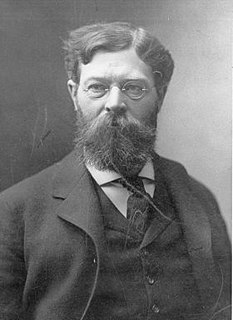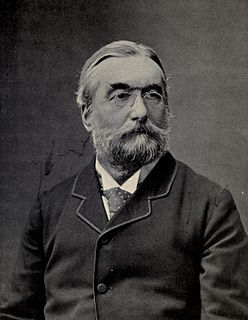A Quote by Karl Marx
There is one great fact, characteristic of this our nineteenth century, a fact which no party dares deny. On the one hand, there have started into life industrial and scientific forces which no epoch of former human history had ever suspected. On the other hand, there exist symptoms of decay, far surpassing the horrors recorded of the latter times of the Roman empire. In our days everything seems pregnant with its contrary.
Quote Topics
Century
Characteristic
Contrary
Dares
Days
Decay
Deny
Empire
Epoch
Ever
Everything
Exist
Fact
Far
Forces
Former
Great
Had
Hand
History
Horrors
Human
Human History
Industrial
Latter
Life
Nineteenth Century
Other
Our
Party
Pregnant
Recorded
Roman
Roman Empire
Scientific
Seems
Started
Surpassing
Symptoms
Times
Which
Related Quotes
The real cause of the great upheavals which precede changes of civilisations, such as the fall of the Roman Empire and the rise of the Arabian Empire, is a profound modification in the ideas of the peoples .... The memorable events of history are the visible effects of the invisible changes of human thought .... The present epoch is one of these critical moments in which the thought of mankind is undergoing a process of transformation.
I conceive that the leading characteristic of the nineteenth century has been the rapid growth of the scientific spirit, the consequent application of scientific methods of investigation to all the problems with which the human mind is occupied, and the correlative rejection of traditional beliefs which have proved their incompetence to bear such investigation.
The history of the Roman Empire is also the history of the uprising of the Empire of the Masses, who absorb and annul the directing minorities and put themselves in their place. Then, also, is produced the phenomenon of agglomeration, of "the full." For that reason, as Spengler has very well observed, it was necessary, just as in our day, to construct enormous buildings. The epoch of the masses is the epoch of the colossal.
It is a remarkable fact that we can never read or hear of the labors which our Lord and Savior Jesus Christ performed, without taking pleasure in it, while, on the other hand, there is nothing so interesting in the life and history of any other individual but what by hearing or reading it time and time again we become tired of it.
I think human consciousness, is a tragic misstep in evolution. We became too self-aware, nature created an aspect of nature separate from itself, we are creatures that should not exist by natural law. We are things that labor under the illusion of having a self; an accretion of sensory, experience and feeling, programmed with total assurance that we are each somebody, when in fact everybody is nobody. Maybe the honorable thing for our species to do is deny our programming, stop reproducing, walk hand in hand into extinction, one last midnight - brothers and sisters opting out of a raw deal.
Any fact facing us, however difficult, even seemingly hopeless, is not so important as our attitude toward that fact. How you think about a fact may defeat you before you ever do anything about it. You may permit a fact to overwhelm you mentally before you deal with it actually. On the other hand, a confident and optimistic thought pattern can overcome or modify the fact altogether.
A fact is a proposition of which the verification by an appeal to the primary sources of our knowledge or to experience is directand simple. A theory, on the other hand, if true, has all the characteristics of a fact except that its verification is possible only by indirect, remote, and difficult means.
The nineteenth century, utilitarian throughout, set up a utilitarian interpretation of the phenomenon of life which has come down to us and may still be considered as the commonplace of everyday thinking. ... An innate blindness seems to have closed the eyes of this epoch to all but those facts which show life as a phenomenon of utility
It seems significant that according to quantum physics the indestructibility of energy on one hand which expresses its timeless existence and the appearance of energy in space and time on the other hand correspond to two contradictory (complementary) aspects of reality. In fact, both are always present, but in individual cases the one or the other may be more pronounced.
Our vulnerability [to ressentiment] is unavoidable (and probably incurable) in a kind of society in which relative equality of political and other rights and formally acknowledged social equality go hand in hand with enormous differences in genuine power, possessions and education; a society in which everyone "has the right" to consider himself equal to everybody else, while in fact being unequal to them.
Unsatisfied desire is the characteristic feature of human life. That is the common fact out of which both pessimism and optimism are constructed. Dwell on the impossibility of ever getting a state of complete and permanent satisfaction with what you have, and you become a pessimist. Dwell on the opportunity for endless growth and conquest which this same fact makes possible, and you become an optimist.
The belief that the animals exist because God created them - and that he created them so we can better meet our needs - is contrary to our scientific understanding of evolution and, of course, to the fossil record, which shows the existence of non-human primates and other animals millions of years before there were any human beings at all.
The cold hand of history, which is for ever robbing us of some of our oldest and best cherished stories, points rigidly to the fact that no such person as King Arthur ever presided over a Round Table. Be this as it may, romance still hugs her heroes to her heart as possessions to be not willingly let die.
In 5,000 years of recorded human history... neither in the east or in the west... has any society ever defined marriage as anything other than between men and women. Not one in 5000 years of recorded human history.
That's an astounding fact and it isn't until the last 12 years or so that we have seen for the first time in recorded human history marriage defined as anything other than between men and between women.








































